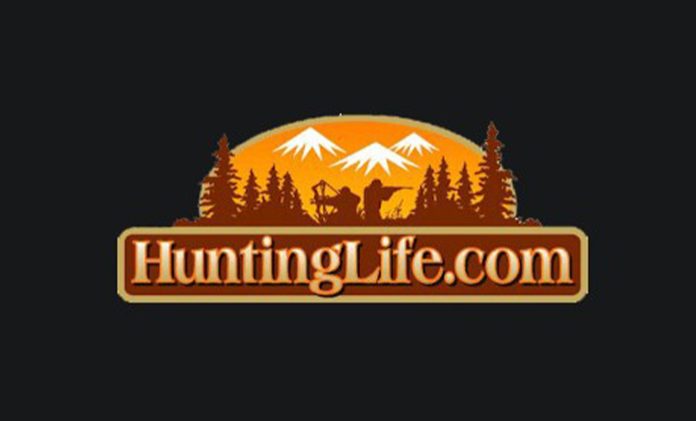
EDGEFIELD, S.C. — Effective conservation takes collaboration, shared resources and a cohesive vision. Across the country, the National Wild Turkey Federation’s partnerships with state and federal agencies, universities, conservation organizations and private landowners are driving research, restoring habitat and securing the future of America’s wildlife and hunting heritage.
“Partnerships and working with other organizations are critical,” said Kaylee Szymanski, NWTF district biologist for New England. “If we can leverage what we have with our partners, then we can get more work done and more research accomplished.”
NWTF partnerships are equally important for state agencies, especially in smaller states in Szymanski’s district. In New Hampshire, for instance, the New Hampshire Fish and Game Department is planning to collaborate with the New Hampshire NWTF State Chapter and the University of New Hampshire’s Veterinary Diagnostic Laboratory to investigate wild turkey survival and harvest rates in the state. Similarly, the Rhode Island Department of Environmental Management is collaborating with the University of Rhode Island to investigate how disease prevalence affects Eastern wild turkey reproductive success.
“In Rhode Island, we only have four game biologists for the entire state,” said Elizabeth Bonczek, Rhode Island Department of Environmental Management upland gamebird biologist. “A lot of the research and on-the-ground work is time intensive, so collaboration is so important for us. Research we’re doing this fall would not be possible without the collaboration we have with the University of Rhode Island, and it also increases stakeholder involvement, which brings in more ideas and data-sharing which will likely lead to more impactful findings.”
Bonczek also serves on the NWTF’s National Wild Turkey Technical Committee. The Technical Committee embodies the importance of partnerships and collaboration, streamlining communication between wild turkey biologists nationwide. Committee members collaborate to address management challenges, promote a positive public perception of hunting, conduct research and implement efforts to manage habitats and turkey populations across states.
“They [agency biologists] are the ones tasked with managing wild turkey populations,” said Jared McJunkin, NWTF acting director of science and planning. “We will continue to stand alongside as a partner and help fund research that will answer questions these agency biologists need to make better management decisions, which trickles down, not just to NWTF members, but to anybody that goes out and chases a wild turkey.”
In conjunction with NWTF staff, the Technical Committee also helps review and grade research proposals submitted through the National Wild Turkey Federation Request for Proposals program. Every year, the NWTF allocates significant funding to cutting-edge wild turkey research through the program, including the recent $503,618 investment in research earlier this year.
“The wild turkey is a valuable resource to me,” said Dr. Nicholas Bakner, post-doctoral researcher at the University of Delaware and 2024 and 2025 NWTF RFP grantee. “I grew up hunting, trapping and being outdoors, and I don’t want to see natural resources disappear. I want my children and other people’s children to be able to experience the same opportunities that I’ve had. I really value the support with the NWTF as a postdoctoral researcher. Without the RFP program, I couldn’t expand my research and keep diving into the turkey world. I really value the opportunity to keep working with the bird.”
Bakner’s 2024 project used innovative technology to garner state-specific breeding, nesting and roosting information, which enabled Bakner to provide habitat management recommendations for the Texas Parks and Wildlife Department’s Eastern Wild Turkey Super Stocking Project.
Another 2024 RFP project conducted by a team at the University of Florida was tackling population abundance using citizen reporting programs like iNaturalist and eBird, as well as trail cameras, hunting harvest data, telemetry studies and survival data. This project emphasized that it is just as important to partner with individuals involved in the outdoor space.
“There’s a real opportunity for our members to be engaged and help inform the science,” said Patt Dorsey, NWTF director of conservation operations for the West. “I want to encourage people not to look at research and question why we’re doing it but be engaged with it whenever you can and be curious.”
Annual brood surveys are a key source of data for state agencies and are a great way to involve the public.
“It’s not just research through a university that helps inform management decisions; this data is a big deal,” said Doug Little, NWTF director of conservation operations for the East. “Hunting harvest surveys are another way that hunters can be involved with research, and it’s really important. They can capture some really important trends. A lot of states are using that information to inform their management decisions, their season settings or their bag limits. As a hunter, I’ve always looked at it as a responsibility. Take an active role.”
Little also emphasized that the research the NWTF supports isn’t limited to biology; it also includes a social component. Recruit, retain and reactivate (R3) is a nationwide initiative to boost involvement in hunting and shooting sports, and it is particularly important when it comes to the human dimensions involved in conservation.
“Recruitment, retention, and reactivation of hunters and shooters is essential to conservation and keeping our hunting heritage alive,” said Mandy Harling, NWTF national director of Education and Outreach programs. “The NWTF proudly supports and engages in R3 research with our partners because it helps us monitor participation trends, identify barriers to involvement, develop effective programs to recruit, retain, and re-engage hunters, and strengthen conservation funding through increased license and gear purchases.”
We need strong support and more supporters to keep research going, not for the sake of doing research, but for the meaningful outcomes it yields, uniting us in our shared love for the outdoors and America’s natural treasures.
The post Why Wild Turkey Research Matters — We’re All in This Together appeared first on HuntingLife.com.
To contune reading this article click here .






